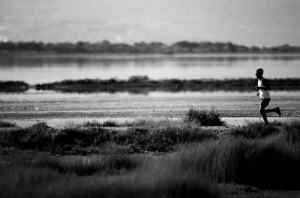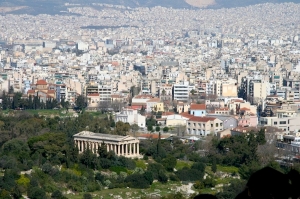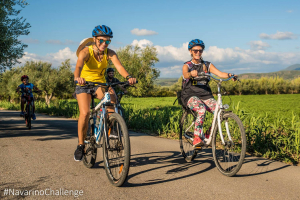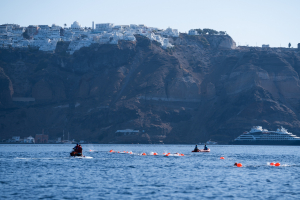XpatAthens
Tuesday, 28 April 2015 09:18
Sushi, Indian & Deals In Athens
Never one to pass up a deal, I am a sucker for all the ‘special deal’ websites that are really taking over – at least, they have taken over my inbox. I have a daily stream of special offers, discounts, coupons, for everything from restaurants and hotels, to theatre tickets, kids toys and ‘hot oil Thai massage’. Even my local supermarket has a discount card and I get their weekly (daily?) stream of offers and discounts. One wonders how we get any work done anymore – it could take an entire morning just to read through the endless stream of deals…
Prior to moving to Greece, I was an avid user of Groupon. I believe this is the ‘grand-daddy’ of the discount sites – you register, receive their daily list of offers, and purchase any that you like. I started using Groupon for restaurants – and still do. The usual deal is a set-menu selection, for +/- 50% off the regular price. You buy the ‘coupon’ online, book your table by phone, and show up with coupon in-hand. A great way to try a place you’ve never been to, without breaking the bank.
This past week I went a bit overboard and bought two Groupon deals for city-centre restaurants that I wanted to try. One was Nakama – a new(ish) sushi place in Kolonaki. With my growing addiction for raw fish, I couldn’t resist. Nakama is great, and affordable even without a coupon. Totally fresh food, lots of choice on the menu, cool, relaxed design, friendly service. And they deliver. Yes I will go back.
The other one was an Indian place in Psirri called Indian Tandoori Masala. With a Groupon deal of 10.90 for 2 people, I was prepared to love it regardless. And I did – no disappointments here.
There are of course a ton of these ‘special deal’ sites - I’ve listed some below, and I’m sure there are more. Not a bad way to try something new and save some euros at the same time!
Groupon.gr
Goldendeals.gr
Specialdeal.gr
Price4all.gr
Oladeals.gr
Xtipiseto.gr
P.S. I’m told that XpatAthens has something similar cooking… Looking forward! ;)
Until next week,
Jack
Massalias 5, Kolonaki
Kairaiskaki 15 & Aisopou, Psirri
Published in
My Week In Athens
Tagged under
Sunday, 04 September 2016 21:07
A Breath Away From Navarino Challenge 2016 - Registration Is Closed
Everything is ready for the top sports tourism event ‘Navarino Challenge’ that returns for the 4th consecutive year in Messinia and Costa Navarino on September 9-11, 2016.
‘Navarino Challenge’ will attract the interest of the sports fans from all over the world who will have the opportunity to do sports and entertain themselves without competition through more than 15 activities (for the whole family), in Pylos and Costa Navarino.
For the third consecutive year, athletes and organizers will move with the safety and efficient engines of the cars of Ford Motor Hellas, the official supporter of ‘Navarino Challenge.’ One of the activities that are expected with great interest this year is golf, which will be held for the first time as an official exclusive activity of ‘Navarino Challenge!’
For the third consecutive year, athletes and organizers will move with the safety and efficient engines of the cars of Ford Motor Hellas, the official supporter of ‘Navarino Challenge.’ One of the activities that are expected with great interest this year is golf, which will be held for the first time as an official exclusive activity of ‘Navarino Challenge!’
The activity of golf will have the support of Navarino Golf Academy and participants will have the opportunity to play and test their skills on Friday, September 9th at 17:30 and Sunday, September 11th at 18:30 at ‘The Dunes Course,’ the first signature golf field with 18 holes in Greece.
The twice Silver Olympic Medalist, Alexandros Nikolaidis, will introduce us, this year again, to the secrets of the most popular Korean martial art TaeKwonDo. The schedule of ‘Navarino Challenge’ includes TaeKwonDo lessons for children and adults on Friday, September 9th and Saturday, September 10th at 17:00 at the indoor basketball field within the facilities of Costa Navarino. Children from Kalamata, Kyparissia and the region of Messinia are expected to zealously join the courses. The detailed schedule and timetable of all activities is included in the following link: http://navarinochallenge.com/event_schedule_2016.html
Another innovation follows these great activities!
The twice Silver Olympic Medalist, Alexandros Nikolaidis, will introduce us, this year again, to the secrets of the most popular Korean martial art TaeKwonDo. The schedule of ‘Navarino Challenge’ includes TaeKwonDo lessons for children and adults on Friday, September 9th and Saturday, September 10th at 17:00 at the indoor basketball field within the facilities of Costa Navarino. Children from Kalamata, Kyparissia and the region of Messinia are expected to zealously join the courses. The detailed schedule and timetable of all activities is included in the following link: http://navarinochallenge.com/event_schedule_2016.html
Another innovation follows these great activities!
‘Navarino Challenge’ innovates once again with ‘Navarino Challenge’ Chatbot!
The new service provided for the first time at a sports tourism event, is launched in cooperation with the MPASS to serve, directly and reliably via Facebook Messenger, all the participants of the event who need to have all the necessary information… on a plate!
Chatbot allows you to find, through your personal Messenger, the news and information that interest you, via a brief automated conversation. By typing the specific keywords or by selecting the appropriate category from the menu, the application will directly send information and a brief preview of each theme.
Through ‘Navarino Challenge’ Chatbot, participants, when writing their bib number will be able to receive a message with their time, at the time of their finishing, be informed on offers that will be active during the event, and on individual activities which will take place in Costa Navarino. Similarly, they will be able to evaluate the event!
‘Navarino Challenge’ has also secured, for those participants who will be staying at The Westin Resort Costa Navarino, some very exclusive extra benefits offered by the brands supporting the event.
More specifically, on Friday, September 9th, 2016 at 17:00 a bike ride in Voidokilia will be organized in collaboration with Navarino Outdoors. Participants will enjoy the magical pictures of Voidokilia, which has been declared one of the best beaches in the world, and the beautiful scenery around the premises of Costa Navarino. Navarino Outdoors continues to support the event by offering a 30% discount on your tour packages (with bike) during your stay in ‘Navarino Challenge.’ To get information and book your preferential tour packages, send your email before your arrival at: outdoors@costanarino.com
Offers do not end here!
‘Navarino Challenge’ has also secured, for those participants who will be staying at The Westin Resort Costa Navarino, some very exclusive extra benefits offered by the brands supporting the event.
More specifically, on Friday, September 9th, 2016 at 17:00 a bike ride in Voidokilia will be organized in collaboration with Navarino Outdoors. Participants will enjoy the magical pictures of Voidokilia, which has been declared one of the best beaches in the world, and the beautiful scenery around the premises of Costa Navarino. Navarino Outdoors continues to support the event by offering a 30% discount on your tour packages (with bike) during your stay in ‘Navarino Challenge.’ To get information and book your preferential tour packages, send your email before your arrival at: outdoors@costanarino.com
Offers do not end here!
Nargile restaurant supports the event, by offering a 20% discount to the participants and guests of “Navarino Challenge” at its a la carte menu.
Do not forget Inbi restaurant that proudly showcases a new standard of Japanese dining, offering the finest quality cuisine and impeccable service. Experience traditional sushi artistry in a contemporary setting endowed with a spectacular view of the Ionian Sea.
You may find more information about the offers which are valid during your stay at ‘Navarino Challenge’ at the following link: http://navarinochallenge.com/event_offers_2016.html
Privileged prices at The Westin Resort Costa Navarino are available for a few more days for those wishing to enjoy the full schedule of ‘Navarino Challenge.’ For further information please contact the event’s official travel agent Vita N Travel. Telephone: +30 210 3249070 or visit: http://navarinochallenge.com/event_accommodation_in_2016_en.html
The event will be held under the Auspices of the Greek National Tourism Organization and the Department of Nutrition and-Dietetics of Harokopio University of Athens with the support of Costa Navarino and The Westin Resort Costa Navarino, as well as the Municipalities of Pylos-Nestor and Trifilia.
For more information about the event, you may contact us through the following special form: http://www.navarinochallenge.com/contact.html
Official Sponsors: Allianz Greece, “Vikos” Natural Mineral Water
Official Airline Partner: Qatar Airways
Official Supporters: Ford Motor Hellas, BIC®, BIC® Sport, Navarino Icons, Village Cinemas, Poseidonia Restaurant, Inbi, New Hotel, Surf Salad
Assisted by: Health Runners Club of Messinia, Pylos Association of Enterprises for Tourism Development, Maritime Athletic Pylos Association “Nestor”, Explore Messinia, Navarino Outdoors, Swim Academy, Aqua Divers Club, Scuba Hellas, Navarino Golf Academy, ThaMa Restaurant, Alpha (Athlima SA), Department of Sports Organization & Management from University of Peloponnese, Anazoe Spa Costa Navarino, 1morekm, Hellenic Athletics Federation (SEGAS), IAAF Kids Athletics, Apia, Diana “exoplizein”, Nargile
Official Travel Agent: Vita N Travel
Official Broadcaster: OTE TV
Privileged prices at The Westin Resort Costa Navarino are available for a few more days for those wishing to enjoy the full schedule of ‘Navarino Challenge.’ For further information please contact the event’s official travel agent Vita N Travel. Telephone: +30 210 3249070 or visit: http://navarinochallenge.com/event_accommodation_in_2016_en.html
The event will be held under the Auspices of the Greek National Tourism Organization and the Department of Nutrition and-Dietetics of Harokopio University of Athens with the support of Costa Navarino and The Westin Resort Costa Navarino, as well as the Municipalities of Pylos-Nestor and Trifilia.
For more information about the event, you may contact us through the following special form: http://www.navarinochallenge.com/contact.html
Official Sponsors: Allianz Greece, “Vikos” Natural Mineral Water
Official Airline Partner: Qatar Airways
Official Supporters: Ford Motor Hellas, BIC®, BIC® Sport, Navarino Icons, Village Cinemas, Poseidonia Restaurant, Inbi, New Hotel, Surf Salad
Assisted by: Health Runners Club of Messinia, Pylos Association of Enterprises for Tourism Development, Maritime Athletic Pylos Association “Nestor”, Explore Messinia, Navarino Outdoors, Swim Academy, Aqua Divers Club, Scuba Hellas, Navarino Golf Academy, ThaMa Restaurant, Alpha (Athlima SA), Department of Sports Organization & Management from University of Peloponnese, Anazoe Spa Costa Navarino, 1morekm, Hellenic Athletics Federation (SEGAS), IAAF Kids Athletics, Apia, Diana “exoplizein”, Nargile
Official Travel Agent: Vita N Travel
Official Broadcaster: OTE TV
TV Communication Partner: National Geographic Channel
Under the Auspices of the Greek National Tourism Organization
Under the Auspices of the Department of Nutrition and-Dietetics of Harokopio University of Athens
Published in
Local News
Tagged under
Tuesday, 23 May 2017 21:14
March 21 - Spring Forward
Learn more about Museums in Athens, a historic relocation of the National Library, and a refugee cookout that stole the show in Thessaloniki!
Please click HERE to view this issue of our newsletter!
Remember to stay connected with us through our weekly newsletter, Facebook, and Twitter!
Published in
Newsletters
Tagged under
Tuesday, 08 May 2018 07:00
UberX Suspends Service In Athens
UberX recently announced that their services will be suspended until further notice, beginning from April 9, 2018.
The company stated that new local regulations and provisions will impact ridesharing services. UberX is in the process of assessing how they can operate within this new framework.
Uber remains committed to Greece and will continue with uberTAXI while they work with local stakeholders to find a way to enable users to enjoy the benefits of modern technologies like Uber.
We will update with more information as soon as it is available.
Published in
Greece In The News
Tagged under
Monday, 16 September 2019 07:00
Significant Art Nouveau Building in Athens Reopens After Full Restoration
Acropole Palace, an iconic building on Patission Avenue and one of the most notable examples of art nouveau architecture, is opening its doors again following an extensive renovation.
Now, after years of restoration works, it is ready to host offices for various departments of the Ministry of Culture, workshops, educational programs, periodical art exhibitions, as well as the ministry’s Fund of Archaeological Proceeds.
Now, after years of restoration works, it is ready to host offices for various departments of the Ministry of Culture, workshops, educational programs, periodical art exhibitions, as well as the ministry’s Fund of Archaeological Proceeds.
The historic building will also offer a coffee shop and a roof garden restaurant overlooking the National Archaeological Museum, Lycabettus Hill, and the Acropolis.
The Acropole Palace was one of the most luxurious hotels in Athens, boasting a lavish interior with stained glass windows, sparkling chandeliers, and elegant mahogany furniture. The impressive building was built between 1926 and 1928 and was included among the finest examples of art-nouveau architecture in Europe during the 1990 UNESCO conference in Vienna.
To read this article in full, please visit: Greek Reporter
Published in
Greece In The News
Tagged under
Thursday, 12 November 2020 11:44
Plans For Greece’s Largest Solar Power Plant Are Underway
Greek oil company Hellenic Petroleum has announced that it will soon receive the funding to build Greece's most extensive solar power plant. This investment is a significant step away from fossil fuels towards renewable energy sources.
To date, the Greek people and economy are heavily reliant on oil and coal, which are heavy pollutants that need to be phased out to protect the environment and climate and fit into the European Union's climate goals.
Sunny weather is one of Greece's most significant natural resources, and Hellenic Petroleum plans to make excellent use of the country's sunshine in this new massive solar power plant. The plant will produce 350 gigawatts of energy/year, which is enough to cover the needs of over 75,000 households.
The power plant will be located in Kozani, Western Macedonia, the region that relies on coal and oil the most, thus creating a visible and tangible alternative to fossil fuels in the place where it is needed the most.
The 75 million euro project fits perfectly into the European Commission's plans for a green economic recovery from the coronavirus pandemic and will be funded by the European Bank for Reconstruction of Development.
To read this article in full, please visit: themayor.eu
Published in
Local Environment
Tagged under
Sunday, 26 September 2021 15:13
Everything Ready For Navarino Challenge 2021
109 years later, one more Gold Olympic Medal in Pylos.
Gold Paralympic medalist Nasos Ghavelas will be honored in Navarino Challenge 2021
The schedule of this year’s event
The top sports tourism fest of Navarino Challenge is approaching and will unite people of all ages and abilities for the 9th year, at Costa Navarino and Pylos, Messinia, on October 15-17, 2021.
Special Honorees
Navarino Challenge honors each year role-model athletes for their contribution to sports and society. This year, the Gold Paralympic medalist in 100m. Nasos Ghavelas and his guide Sotiris Garaganis will be honored. They both offered emotional moments and pride for Greece at the Tokyo Paralympic Games, while they also set a world record (with a time of 10:82) in the final. This is the second gold medal coming from Pylos, Ghavelas’ place of origin, after that of Kostis Tsiklitiras.
As part of this year’s event, Navarino Challenge will also honor the top international basketball player of all time, Olympian & Eurobasket MVP Evina Maltsi. Basketball fans will have the opportunity to meet her at the 4on4 tournament, while children will learn the sport’s basic principles by the great athlete, together with the Euroleague Legend, Joe Arlaukas.
The schedule of Navarino Challenge 2021
With its message “sport unites people”, the event promotes again this year the benefits of exercise, the Olympic values and fair play with more than 30 sports activities and 15 Olympic sports. You may find the event’s detailed schedule here.
Bike Ride to Voidokilia & Indoor Climbing
With the experience and dynamics of Navarino Outdoors, participants will have the opportunity to make their favorite bike ride to the beautiful Voidokilia and enjoy the unique Messinian landscape. For more information & participation outdoors(at)costanavarino.com
Respectively, another activity full of adrenaline awaits the whole family. At the Navarino Rocks indoor climbing wall, people of all ages will be able to take climbing lessons.
Register now for running
Run in one of the top Greek Half Marathons of 21.1km, together with the Greek-American ultramarathon runner Dean (Konstantine) Karnazes, in the 10km route or the fun 5km route by Samsung. Runners can participate by completing the available form through the following link. Moreover, the 1km children’s route will be held in two groups, for children 10-14 years old and kids up to 9 years of age. The children’s race is held for free.
Book your room now
Enjoy a weekend full of outdoor wellness activities for all ages. Book now the event’s accommodation package which is full of sports activities and includes half board. Live the unique sports and cultural experience that is offered to you. For more information on accommodation packages at The Westin Resort Costa Navarino you may send your email to booking(at)navarinochallenge.com or call Vita N Travel at +30 210 3249070. Check the accommodation packages here.
The event continues to innovate by having Samsung Electronics Hellas as its Official Technology Partner for another year. Following the successful contribution of the leading technology company, in achieving zero paper use for the purposes of the 2019 event, Samsung returns to the Navarino Challenge. The top technology company this year brings the third generation of folding premium smartphones, the Galaxy Z Fold3 5G and Galaxy Z Flip3 5G as well as the completely redesigned Galaxy Watch4 and Galaxy Watch4 Classic to provide the best functions for managing fitness. The Samsung wearables series is complemented by the Galaxy Buds2, the wireless headphones with premium, top sound and comfortable application. Samsung’s experience at the Navarino Challenge is completed with the Neo QLED TVs that offer an absolutely exciting, cinematic, viewing experience and the revolutionary MicroLED The Wall™ that can cover surfaces of any size and shape, offering vibrant and natural colors for an unsurpassed visual experience.
Vikos company supports the event as an Official Sponsor with the Vikos Natural Mineral Water and the Vikos Natural Mineral soft drinks spreading the message of the sports ideal and sportsmanship, while offering the necessary hydration and revitalization to all participants. Vikos Natural Mineral Water pushes with its flow the athletes to continue their effort and complete their exercise by providing them with the necessary balance, wellness and energy.
The favorite breakfast cereal bars FITNESS®, as the Official Breakfast Partner of Navarino Challenge, will be by the side of the participants at the high intensity training and pilates lessons, giving them the energy they need to meet the challenges they will encounter during this unique event! With their B-complex vitamins that helps release energy from food, they form the ideal choice for a delicious and balanced breakfast.
You may find the Discount Partners’ offers, which are valid throughout the 2021 Navarino Challenge for all participants here.
Samsung is the Official Technology Partner.
Vikos Natural Mineral Water is the event’s Official Sponsor.
Luanvi is the Official Sports Supplier.
Costa Navarino and The Westin Resort Costa Navarino are the Official Hospitality Sponsors.
Poseidonia and Karalis Beach Hotel are Navarino Challenge’s Official Supporters.
Messinian Spa is the Official Beauty Partner.
Nestlé FITNESS® is the Official Breakfast Partner.
The North Face is the Outdoor Partner.
Target Security, Fysiotek Sports Lab are the event’s Partners.
Avance is the Official Car Rental Partner.
π3 (pi3) is the Sustainability Partner.
SKAI is the Premium TV Partner.
National Geographic is the Strategic Partner.
Deree - The American College of Greece is the Educational Partner.
Explore Messinia, FitnessArt, F45 Barrio Salamanca, Navarino Golf Academy, Navarino Outdoors, Navarino Racquet Academy, Pilates by Mandy, Red Swim Academy, Swim Academy, Triantafyllidis Beach Arena, Vizantinos target sport club, Marathon Team Greece are Navarino Challenge’s Athletic Partners.
A Little Shelter, All For Blue, ANIMA, Diaforozo, Karkinaki, The Other Human, Pet Partners of Hellas are the event’s nonprofit organizations CSR partners.
Navarino Challenge is assisted by Vita N Travel, Karalis City Hotel & Spa, Lifeguard Patrol, Pylos Association of Enterprises for Tourism Development, Maritime Athletic Pylos Association “Nestor”, Pilia Express, Kayak.
Anazoe Spa, Attica Selections, Kessaris, Nargile, Panellinios Agora Games are the Discount Partners.
Navarino Challenge will be held under the auspices of the Ministry of Tourism, the General Secretariat of Sport of the Ministry of Culture & Sport, the International Olympic Academy and the Greek National Tourism Organization.
The event has joined the Greek actions of the #BeactiveHellas 2021 programme of the European Commission and is held under the auspices of the General Secretariat of Sports. The event is organized by ActiveMedia Group which is also responsible for the event’s Sports Production. All running races are co-organized with Messiniakos Gymnastic Club and EAS SEGAS Peloponnese Region.
Published in
Local News
Tagged under
Monday, 22 August 2022 07:00
Healthy Drinks With A Greek Twist To Quench Your Thirst
The craze of infused water has taken the world by storm, and we have the perfect way to add a Greek twist to your infused water concoctions.
Recent studies have shown many health benefits of drinking infused water. These benefits include weight loss, increased hydration, and a means of detoxing.
When you are in need of a beverage that quenches your thirst, why not choose one that is also good for you—one with a Greek twist?
1. Fresh Day Infusion
What you need: Mastiha + filtered water
One must-try infusion you will love is infused water with mastiha from the mastic trees on Chios. This tree resin has valuable health properties such as aiding in relieving digestive issues due to its antioxidants and anti-inflammatory compounds.
Preparation of infused water: Head to your health food store and get some mastiha resin— you can even find mastiha powder—and add some to your water and enjoy the fresh, earthy taste while reaping the health benefits.
Bonus: Add some fresh mint to your infused drink for a truly Mediterranean experience!
2. Cherry Bliss Infusion
What you need: Cornelian cherries + Greek Honey + filtered water
Another great Greek twist you can add to your infused water drink is Cornelian cherries from Drama in northeastern Greece. Cornelian cherries have a potent astringent action and, therefore, have traditionally been used for curing diarrhea and dysentery. They are also valued for their potent tonic and restorative properties.
Preparation of infused water: Wash the cherries and cut them into halves; add them to your water. If you desire to sweeten your cherry-infused water, add a teaspoon of Greek honey.
Bonus: You can also add Greek lemons to this drink for a concoction that tastes something like Cherry Coke!
To read this article in full, please visit: greekreporter.com
Recent studies have shown many health benefits of drinking infused water. These benefits include weight loss, increased hydration, and a means of detoxing.
When you are in need of a beverage that quenches your thirst, why not choose one that is also good for you—one with a Greek twist?
1. Fresh Day Infusion
What you need: Mastiha + filtered water
One must-try infusion you will love is infused water with mastiha from the mastic trees on Chios. This tree resin has valuable health properties such as aiding in relieving digestive issues due to its antioxidants and anti-inflammatory compounds.
Preparation of infused water: Head to your health food store and get some mastiha resin— you can even find mastiha powder—and add some to your water and enjoy the fresh, earthy taste while reaping the health benefits.
Bonus: Add some fresh mint to your infused drink for a truly Mediterranean experience!
2. Cherry Bliss Infusion
What you need: Cornelian cherries + Greek Honey + filtered water
Another great Greek twist you can add to your infused water drink is Cornelian cherries from Drama in northeastern Greece. Cornelian cherries have a potent astringent action and, therefore, have traditionally been used for curing diarrhea and dysentery. They are also valued for their potent tonic and restorative properties.
Preparation of infused water: Wash the cherries and cut them into halves; add them to your water. If you desire to sweeten your cherry-infused water, add a teaspoon of Greek honey.
Bonus: You can also add Greek lemons to this drink for a concoction that tastes something like Cherry Coke!
To read this article in full, please visit: greekreporter.com
Published in
Greek Food & Diet
Tagged under
Friday, 06 December 2024 16:12
Start A Business In Greece | Types Of Companies
Starting a company in Greece is a straight forward process. Before getting started, it is important to decide on the most appropriate company structure for your business and proposed operations. This article is a short guide to the various business entity options.
Feel free to ask us your questions and our team of experts will be happy help you. Also take a look at our business services as they might just be the peace of mind you’re looking for!
Feel free to ask us your questions and our team of experts will be happy help you. Also take a look at our business services as they might just be the peace of mind you’re looking for!
Sole Proprietorship (Atomiki Epihirisi)
This is a very simple business entity where there is no separation between the owner and the business. It is easy and quick to establish and there is no liability protection. Sole decision making is one feature and the owner has control over business decisions as there is no separate legal entity.
Private Limited Liability Company (IKE – Etaireia Periorismenis Efthinis)
Many investors and business people chose to establish a private company (IKE) as it is a simple and flexible company structure. An IKE is established by one or more persons who owns shares. Liability is limited. The minimum capital requirement is €1 and there is an administrator (no board of directors). There are statutory audit requirements which are undertaken in line with EU directives. The legal representatives have liability and the time required for incorporation is approximately five days. This company structure is suited for small and middle sized companies who require flexibility to operate.
General Partnership (OE – Omorrythmi Etaireia)
This is a business structure where two or more people are jointly liable for losses, management responsibilities and of course profits. Each partner is personally liable for the debts and financial obligations of the business. Any creditors are able to go after the partners in their personal capacity. There is generally a written partnership agreement which dictates profit sharing, management responsibilities and other issues. Generally speaking, all of the profits (and losses) are shared equally, unless something different is specified in the agreement. There is pass-through taxation, meaning that the profits pass through to the partners personal income tax returns and aren’t allocated to the company. There are risks of personal liability for general partnerships which need to be considered.
Limited Partnership (EE – Eterorythmi Etaireia)
The Limited Partnership (EE) company is a very popular option because there is only unlimited liability for one partner. The other partners have their liability limited to their individual contributions. It provides a combination of both a partnership and corporation in terms of characteristics. The benefit from a liability perspective is that the limited partners have their liability limited. This is similar to a corporation and protects the personal assets of the limited liability partners. Most of the time, the general partners are highly active in the day to day activities and management of the company. In addition, there are same tax incentives since there is pass through taxation and the flat rate is generally chargeable for each partner. This is a useful structure for the ‘silent partner’ structure which popular in many western countries. There is no minimum capital share requirement for this entity and EEs are governed by the Greek Civil Code.
Public Limited Liability Company (AE – Anonymi Etairia)
This company type is generally suitable for larger businesses or enterprises who are looking to raise capital from the public. There is a minimum share capital amount of 24,000 euros. Given the public nature of these companies, the regulations, reporting requirements and oversight of the companies is much more extensive than for IKE companies. In addition, the shares issued in AE companies can be traded on the stock exchange. This helps enable quick access to large amounts of capital as well as increase in liquidity.
If you're thinking about starting a business in Greece, we can help! Get in touch with us and our team of experts will be happy to answer your questions.
This is a very simple business entity where there is no separation between the owner and the business. It is easy and quick to establish and there is no liability protection. Sole decision making is one feature and the owner has control over business decisions as there is no separate legal entity.
Private Limited Liability Company (IKE – Etaireia Periorismenis Efthinis)
Many investors and business people chose to establish a private company (IKE) as it is a simple and flexible company structure. An IKE is established by one or more persons who owns shares. Liability is limited. The minimum capital requirement is €1 and there is an administrator (no board of directors). There are statutory audit requirements which are undertaken in line with EU directives. The legal representatives have liability and the time required for incorporation is approximately five days. This company structure is suited for small and middle sized companies who require flexibility to operate.
General Partnership (OE – Omorrythmi Etaireia)
This is a business structure where two or more people are jointly liable for losses, management responsibilities and of course profits. Each partner is personally liable for the debts and financial obligations of the business. Any creditors are able to go after the partners in their personal capacity. There is generally a written partnership agreement which dictates profit sharing, management responsibilities and other issues. Generally speaking, all of the profits (and losses) are shared equally, unless something different is specified in the agreement. There is pass-through taxation, meaning that the profits pass through to the partners personal income tax returns and aren’t allocated to the company. There are risks of personal liability for general partnerships which need to be considered.
Limited Partnership (EE – Eterorythmi Etaireia)
The Limited Partnership (EE) company is a very popular option because there is only unlimited liability for one partner. The other partners have their liability limited to their individual contributions. It provides a combination of both a partnership and corporation in terms of characteristics. The benefit from a liability perspective is that the limited partners have their liability limited. This is similar to a corporation and protects the personal assets of the limited liability partners. Most of the time, the general partners are highly active in the day to day activities and management of the company. In addition, there are same tax incentives since there is pass through taxation and the flat rate is generally chargeable for each partner. This is a useful structure for the ‘silent partner’ structure which popular in many western countries. There is no minimum capital share requirement for this entity and EEs are governed by the Greek Civil Code.
Public Limited Liability Company (AE – Anonymi Etairia)
This company type is generally suitable for larger businesses or enterprises who are looking to raise capital from the public. There is a minimum share capital amount of 24,000 euros. Given the public nature of these companies, the regulations, reporting requirements and oversight of the companies is much more extensive than for IKE companies. In addition, the shares issued in AE companies can be traded on the stock exchange. This helps enable quick access to large amounts of capital as well as increase in liquidity.
If you're thinking about starting a business in Greece, we can help! Get in touch with us and our team of experts will be happy to answer your questions.
This content has been created in collaboration with Tsaks Consulting
Published in
Tips & Advice
Tagged under
Monday, 25 August 2025 10:14
Exclusive Discounts At Santorini Experience 2025
Magical Santorini gets into action mode as it welcomes the top-tier event, Santorini Experience, celebrating its 10th anniversary and taking place from October 10 to 12, 2025! In a breathtaking setting — with the Caldera, the Volcano, and the Aegean blue as a backdrop — athletes from all over the world are getting ready to experience a unique event that combines the thrill of sports with the beauty of nature.
Don’t forget to secure your spot! Register now for Santorini Experience 2025 and become part of a unique event that combines action, nature, and beauty on one of the world’s most iconic islands.
Additionally, residents of Santorini (Thira) can participate for free. Registrations are exclusively available at the Alafouzos Sport store and have already begun. Don’t miss this opportunity!


With the Safety of Santorini Boatmen Association
One of the most spectacular highlights of the schedule will be the open water swimming route, taking place on the morning of Friday, October 10. Participants will swim a unique 2.4 km (1.5 miles) course, starting from the Volcano and finishing at the Old Port of Fira, with the island’s imposing view as a stunning backdrop. This route is offered to participants only once a year, with permission from the Cyclades Regional Tourism Authority and the consent of the Santorini Port Authority. With waters reaching depths of up to 400 meters and temperatures around 22–23°C, conditions are ideal for a truly enjoyable race.
The event places a strong emphasis on athlete safety, with trained lifeguards and rescue boats present throughout the entire course. Professional lifeguards and vessels from Lifeguard Patrol will also be on duty, providing the necessary medical and first aid equipment.
Further support will be provided by the Santorini Boatmen Association, Caldera Yachting, and Santorini Nautical Club, all contributing boats and crew. Every swimmer will be provided with a swim buoy for extra protection. The use of a personal swim buoy is mandatory for all participants.
The race’s Technical Director is the distinguished coach Nikos Gemelos, whose extensive experience and accolades include achievements in the Olympic Games and World Championships.
Paralympian Efthymia Gouli Swims in Santorini
This year’s edition of Santorini Experience will once again welcome renowned names from both the international and Greek swimming scenes, adding prestige to the open water race. Among the new additions, standout athlete Efthymia Gouli, 8th place Paralympian in Tokyo, 5th at the 2022 World Championships, and bronze medalist at both World and European Championships, will be joining the event. The distinguished swimmer is supported by Vikos Νatural Μineral Water. Among the already confirmed participants are Japanese Olympian open water swimmer Yasu Hirai Fukuoka, as well as Nora Drakou, a four-time Olympian, further elevating the prestige and competitive spirit of this year’s race.

Running against the backdrop of the Aegean blue
The three running routes of Santorini Experience — the 5 km “Aristides Alafouzos” powered by Miele, the 10 km powered by SIXT, member of MOTODYNAMICS Group, and the 15 km — offer unforgettable experiences for participants of all levels.
Starting and finishing in Oia, runners will take in the breathtaking views as they pass through the picturesque settlements of Oia, Imerovigli, and Firostefani. Each route combines dirt trails with landscapes of exceptional beauty, ideal for those looking to feel the island’s rhythm through the power of running.
30% Discount with Blue Star Ferries
Those traveling to the island for Santorini Experience will have the opportunity to enjoy a safe and comfortable journey with Blue Star Ferries, the event’s Silver Sponsor. Greece’s top passenger ferry company offers a 30% discount on ferry tickets (all seat categories except cabins) from Piraeus, the Cyclades, and the Dodecanese to Santorini and back, as well as a 30% discount on vehicles for those visiting the island between October 5 and 15, 2025.
Each registered participant is entitled to the same discount for up to three additional accompanying persons. Participants who have successfully completed their registration can arrange their ferry bookings and ticket issuance by contacting the following port agencies:
-Piraeus: Gelasakis Shipping & Travel Center, Tel. +30 210 4222440
-Santorini: Dakoutros Travel, Tel. +30 22860 22201


Exclusive Discounts on SIXT’s Premium Fleet
SIXT, member of MOTODYNAMICS Group, returns to Santorini Experience 2025 as the Premium Mobility Partner, offering special discounts on its fully updated premium fleet.
Take advantage of preferential rates for bookings made until October 15, with rental periods between October 1–15, at all SIXT locations.
Premium Mobility Partner is SIXT, member of MOTODYNAMICS Group.
Silver Sponsors are AESTIAN Philoxenia & Hospitality and Blue Star Ferries.
Bronze Sponsors of the event are Miele, Snappi, NOŪS Santorini.
Official Water is Vikos Natural Mineral Water.
Official Sports Store is Alafouzos Sport.
Official Technical T-shirt is 42k.
Partners of the event are Santorini Boatmen’s Association, Caldera Yachting, VIP Santorini, Messinian Spa, Rizes Gastro Taverna, Santorini Nautical Club and Anatomic Line.
Lifeguard Partner is Lifeguard Patrol.
Jewelry Partner is Spanou Jewelry.
The event is Assisted By Humanity Greece.
Exclusive Accommodation Offers at Hotels
The event will be held with the valuable support of the Hospitality Sponsors, that promote the island and offer tremendous support to the event through special rates. The confirmed hotels so far are the following: Athina Luxury Suites, NOŪS Santorini, Katikies Garden Santorini, Vedema, A Luxury Collection Resort Santorini (Empiria Group), Santo Collection Resort & Villas, Apeiron Blue, 270 Oia’s View, Lydia’s House, Coco-Mat Hotel Santorini, Magma Resort Santorini, Aqua Vista Hotels, The Majestic Hotel Santorini (Kord Hotels), Thimari Lodge, Rocabella Santorini Hotel & Spa, Meltemi Suites, Meltemi Village, Atlantis Beach, Santo Houses, En Plo Boutique Suites, Mon Signor, Fanouris Condo, MONOLiTHIA, Epavlis Hotel (Meraki Collection), Eteoro Suites Santorini, Sea Breeze Beach Resort Santorini, K & K Unique Holiday Homes, Aja Retreat, Loizos Stylish Residences, Venus Sunrise Suites & Villas, Sienna Eco Resort.
Check out here the special offers from our hospitality sponsors for Santorini Experience participants, valid only during the event days!
The event is organized by the Municipality of Thira, Thira Department of Sports & Culture, and ActiveMedia Group.
Official Hashtag: #SantoriniExperience
Published in
Local News
Tagged under













